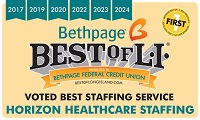Non-Hospital Nurse Jobs
If you’re a nurse or considering becoming a nurse but don’t necessarily want to work bedside, this blog post is for you! Nurses have the opportunity to pursue countless jobs outside of the typical hospital setting. I’m going to break down how to become a nurse and present a small list of non-hospital nurse job opportunities!
Registered Nurses (RN), Licensed Practical Nurses (LPN), and Certified Nurse Assistants (CNA) have an array of career paths once they’ve passed the NCLEX or state test. Now, typically when you think about nursing jobs, we think about hospital setting positions. However, there are plenty of other opportunities for you if this typical setting is not your cup of tea!
Getting Started in Your Nursing Career
The first step to becoming a nurse is deciding which degree you want to pursue. There are many different ways to obtain a nursing career from an accredited college, university, or program. The main paths of nursing education are listed below.
Associate degree
Typically to earn an associate degree in nursing, it takes around 2 years of education. There are 3 different associate degree options you can receive in this field. Your options include Associate Degree in Nursing (ADN), Associate of Science in Nursing (ASN), and Associate of Applied Science in Nursing (AAS). There are slight differences between these degrees. An ADN focuses on comprehensive nursing courses and clinical practice. This is the typical path nurses choose if they know they will be continuing their education. An ASN typically focuses on clinical practice and course work, with a bigger focus on the clinical practice side. You are still able to continue education with this degree, although it may be tougher to transfer credits. AAS is very similar to both ASN and ADN degrees, the biggest difference is focusing more on specialties within nursing. Any of these associate degrees will allow you to take the NCLEX-PN or the NCLEX-RN exam.
Bachelor’s degree
There are three ways to receive a Bachelor of Science in Nursing degree. You have the traditional BSN 4-year program, an accelerated program, and the RN-BSN program. The distinguishing difference between a BSN nurse and an RN nurse is that an RN holds an associate degree whereas a BSN nurse holds a bachelor’s degree. The RN-BSN programs are for nurses that already hold an RN license but stopped education after receiving an associate degree. This program gives registered nurses the opportunity to receive their bachelor’s in a faster time frame.
Nurse Diploma
A nursing diploma curriculum is often geared towards adults as a fast pace, more affordable program. The biggest difference between receiving a nurse diploma vs an associate degree is that a nursing diploma does not provide college credits. Therefore, if you’d like to further your education, this program will not qualify towards any credits for your degree. This type of program is often based in a hospital setting. You are still eligible to take the NCLEX-PN to receive your license if you go through an LPN program.
Nursing Certificates
Another route to entering the nursing realm is to consider being a Certified Nursing Assistant. CNAs will need to attend a state-approved CNA program at an accredited institution before getting officially certified. CNAs are entry-level roles that provide vital support to both patients and nurses. This is a fantastic entry point in the healthcare industry that opens the doors for many other nursing career opportunities. While you won’t qualify to take the NCLEX, you will still be required to take state testing to receive the certification.
Getting Your License
Now that you have completed your education, whether it was an associate degree, bachelor’s degree, diploma, or certification, you will need to take either the NCLEX or state test to receive your license/certification. There are two types of NCLEX tests depending on the type of program you have completed. The NCLEX-RN is to obtain your Registered Nurse (RN) license, whereas the NCLEX-PN is to obtain your Licensed Practical Nurse (LPN) license. To qualify to take the NCLEX-PN, you must hold either an associate degree or a nursing diploma. To qualify for the NCLEX-RN, you must hold either an associate degree or a bachelor’s degree. Once you have passed the NCLEX or state test, you are now officially allowed to work in the field!
Non-Hospital Nursing Jobs
As I mentioned in the beginning of this blog, typically when you think about nursing careers, you think of working bedside at a hospital. A common misunderstanding is the wide range of non-hospital nursing jobs within the nursing profession. If you have the desire to be a nurse but don’t want to work in a hospital, this blog is for you! Below is a small list of different nursing jobs that do not require you to work within a hospital setting.
RN/LPN School Careers
There are many job opportunities as an LPN/RN to work in a school setting. Working in a school district offers unique benefits such as not working any weekends, holidays, or nights! Different titles in a school include working as a school nurse, one on one care, and transportation support. All three of these positions have different responsibilities.
Health Office
As a school nurse working in the health office you will be providing health services for students and faculty. This position is an integral part of a school environment. A school nurse supports the optimum physical, emotional, mental, and social climate for all students and staff. Outside of providing health services, you will typically be responsible for maintaining medical records, assisting in promoting health/hygiene practices, and acting as an advocate between students, families, and school personnel.
1:1 Care
One on one care within a school looks very different than a school nurse. This position’s responsibilities vary based on the case you are assigned to. Generally, you can expect to oversee the application of the nursing process and the delivery of student care. As a one-on-one caretaker, you will stay with the medically fragile student throughout the day by attending all their classes and activities. Not only do you provide medical attention when needed, you will also have a hand in supplying plans of care catered to the particular student.
Transportation
The third position you can work as in a school setting is transportation support. Typically referred to as “RN/LPN School Transportation”, this position includes accompanying a medically fragile student to and from school, that’s it! By accompanying the student to and from school, you will be responsible for providing medical treatment to the student should a medical issue occur. There are many positions that combine this title with the one-on-one care position as well. This is a great position for those who are looking for a change in speed in their career.
CNA School Position
Certified Nursing Assistants have the opportunity to work as a paraprofessional within the school setting. Paraprofessionals and teacher’s assistants are synonymous. Titles of this position may differ according to the school districts, however, there really are no key differences between the two. As a CNA paraprofessional, the goal is to typically promote the student’s growth by providing academic, emotional/behavioral, and physical support. Some general responsibilities include providing instructional reinforcement, assist in students daily living activities and supervising students. CNAs may also perform other duties as directed by the classroom teacher or school administrator.
Correctional Facility Positions
Registered Nurses and Licensed Practical Nurses have opportunities to work in correctional facilities, and not all positions require you to have contact with inmates! Of course there are the main positions of taking care of inmates and their medical needs. However, there are also opportunities for working in the pharmacy or being a nurse administrator. When it comes to working in the pharmacy you can expect your job duties to look like filling prescription orders and working with their systems. Working in the pharmacy typically means you have no contact with inmates.
Nurse Case Managers
A nurse case manager job can be defined as a medical professional who acts as a liaison between healthcare professionals, providers, and patients. This position can be in an office or hospital setting. For example, the RN case managers that work for us (Horizon Healthcare Staffing), is an in-office position. They oversee client’s cases and are responsible for managing the charts and coordinating the placement of nurses onto new assignments.
Nurse Executive
This is one of the most significant and growing important roles in the healthcare system. A nurse executive position holds the most senior administrative role in a nursing organization. This position requires both a BSN and a master’s degree. As a nurse executive, you will typically manage the nursing staff, hire and train oncoming staff, resolve issues within the organization, oversee the management side of patient care services, and make administrative decisions that support the organization’s goals. Different titles of nurse executive roles include director of nursing, chief nursing officer, patient care director, and VP of nursing. Although this is not an entry-level position, it is something you can achieve by continuing your education as a nurse.
Healthcare Recruiters
A different route you can take in your nursing career is becoming a healthcare recruiter. If you have a passion for the human resources side of healthcare, this is a great option for those who are looking to switch it up. Now, it is possible to be a healthcare recruiter without having a nursing degree. However, you will hold more value as someone who has a degree and experience in the field. Healthcare recruiters are one of the top jobs for nurses outside of the hospital. Typically, they spend their days interviewing potential candidates, reviewing resumes, conducting and facilitating initial assessments, and negotiating terms. This position can be with a healthcare staffing company or working directly with healthcare facilities.
Conclusion
Just by looking at this small list of different nursing jobs, it is very apparent that there are countless non-hospital nursing job opportunities! There are plenty of other positions and specialties not listed here that provide a work environment outside of that hospital setting. As a nurse, you have a wide variety of open doors to choose from. From administrative work to school settings, home care to travel nurses, this profession is not limited. If you are a Nurse in New Jersey or New York looking to have a change or start in a new position, take a glance at our current job openings!


